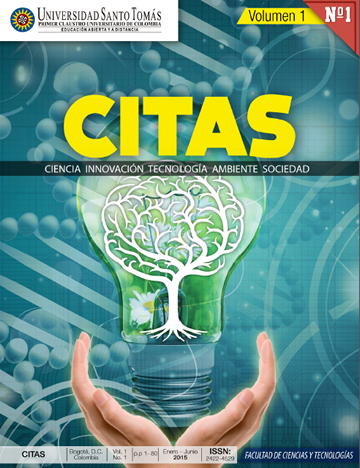La mirada de la práctica empresarial como método de enseñanza universitaria
The look of business practice as a university teaching method
Abstract (en)
Although theory can become an important starting point that provides a specific general culture to the student, the truth is that the student must acquire skills, techniques, abilities and the ability to analyze very specific situations; being the business practice, one of the most important means to acquire these competences, which will allow you in the future, to function with security and suitability in your professional field. According to your professional development, you will be evaluated for your practical skills, taking into account that we are in a world of results.
Abstract (es)
Si bien la teoría puede llegar a constituir un punto de partida importante que aporta una cultura general especifica al estudiante, lo cierto es que éste debe adquirir destrezas, técnicas, habilidades y capacidad de análisis a situaciones muy concretas; siendo la práctica empresarial, uno de los medios más importantes para adquirir estas competencias, que le permitirán en un futuro, desenvolverse con seguridad e idoneidad en su campo profesional. Según su desenvolvimiento profesional, será evaluado por sus habilidades prácticas, teniendo en cuenta que estamos en un mundo de resultados.
References
Hurtado, B. I. (s.f.). Módulo Problemática de la Educación Superior: El reto de la Educación Universitaria Frente a las Nuevas Tecnologías. Bogotá, Colombia: Editorial USTA.
Werner, J. (1993). Fondo de Cultura: Economía. (pp. 3–10). Bogotá: Editorial Presencia.
Brunner, J. (1996). Modulo Comunicación: El lenguaje de la Educación realidad mental y mundos posibles. Barcelona: Editorial: USTA.
Meneses, M. E. (s.f.). Modulo Técnica: Perfil del Maestro Universitario. Bogotá Docentes: Editorial: USTA.
Prieto, C. D. (s.f.). Modulo Técnicas Docentes: Mediación Pedagógica de las Tecnologías. Bogotá: Editorial: USTA.
Visitas
Downloads
How to Cite
License
The authors sign a transfer of rights so that Universidad Santo Tomás can publish the articles under the conditions described below. The authors, readers and other users are free to share, copy, distribute, perform and publicly communicate the work under the following conditions:
-
Attribution — You must give appropriate credit, provide a link to the license, and indicate if changes were made. You may do so in any reasonable manner, but not in any way that suggests the licensor endorses you or your use.
-
NonCommercial — You may not use the material for commercial purposes.
-
ShareAlike — If you remix, transform, or build upon the material, you must distribute your contributions under the same license as the original.
No additional restrictions — You may not apply legal terms or technological measures that legally restrict others from doing anything the license permits.
CITAS is licensed under Creative Commons Attribution-NonCommercial-ShareAlike 4.0 International (CC BY-NC-SA 4.0).

Until 2019 the documents published in the magazine were under the Creative Commons Attribution-ShareAlike license (CC BY-SA), however, in order to guarantee the open and free distribution of the content published in the magazine, it was decided to change the type Commons Attribution-NonCommercial-ShareAlike 4.0 International license (CC BY-NC-SA 4.0)






